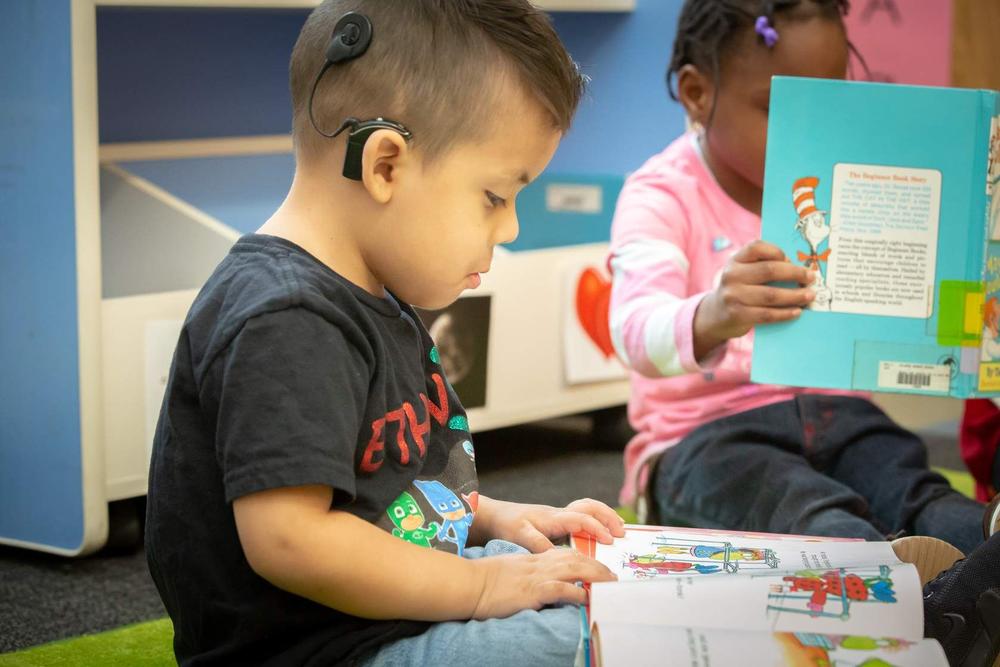
Cochlear Implants
You may have heard or read about cochlear implants. If you are interested in a cochlear implant for your child, talk to your audiologist or ENT doctor. They can tell you if a cochlear implant might be helpful. They can also help you find a pediatric cochlear implant program near you.

A few things to know
- Cochlear implants are for children with a severe to profound hearing loss.
- A cochlear implant has an internal part that is surgically placed into the inner ear and an external part that your child wears behind her ear.
- Not all children are candidates for cochlear implants.
- The implant bypasses the normal auditory pathway (outer ear, middle ear, inner ear). It stimulates the auditory nerve directly and the brain learns to interpret this electrical stimulation as speech.
- A cochlear implant “synthesizes” hearing of sounds. Your early intervention provider will help you help your child learn to listen and understand through their cochlear implants.
- With proper follow-up therapy, cochlear implants can help children with severe to profound hearing loss develop better speech and language skills.
- Federal guidelines say that a child with a profound hearing loss should be at least 12 months old at the time of surgery. It is important to start the cochlear implant candidacy process early and speak with the implant team about your child’s potential candidacy.
- Speak with your implant team surgeon and audiologist about the potential risks and benefits of cochlear implantation.
Source: EHDI
Cochlear Implant Resources